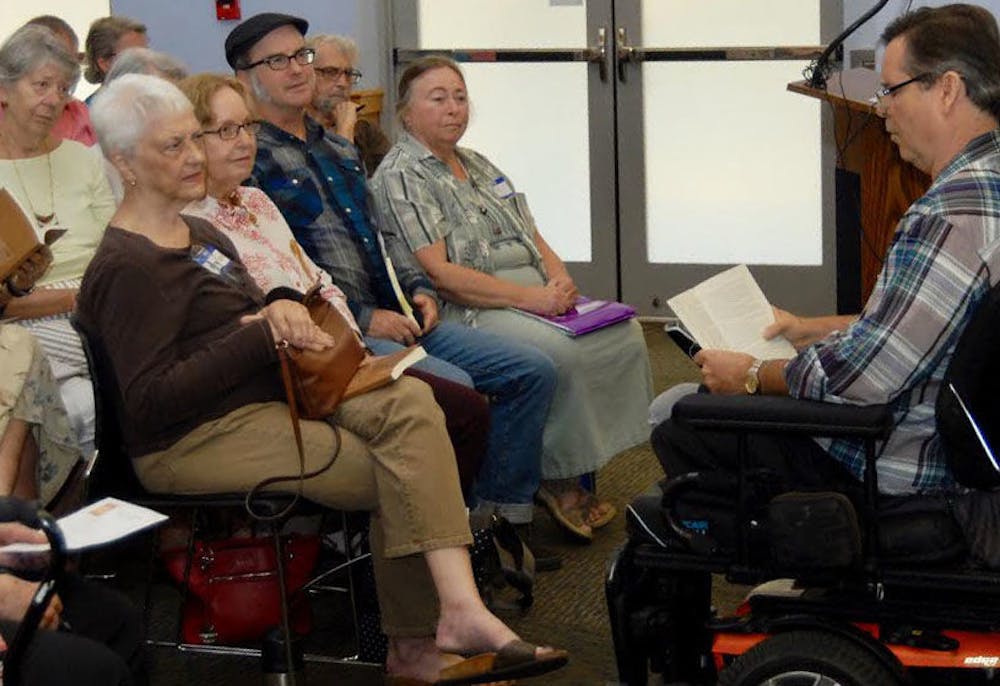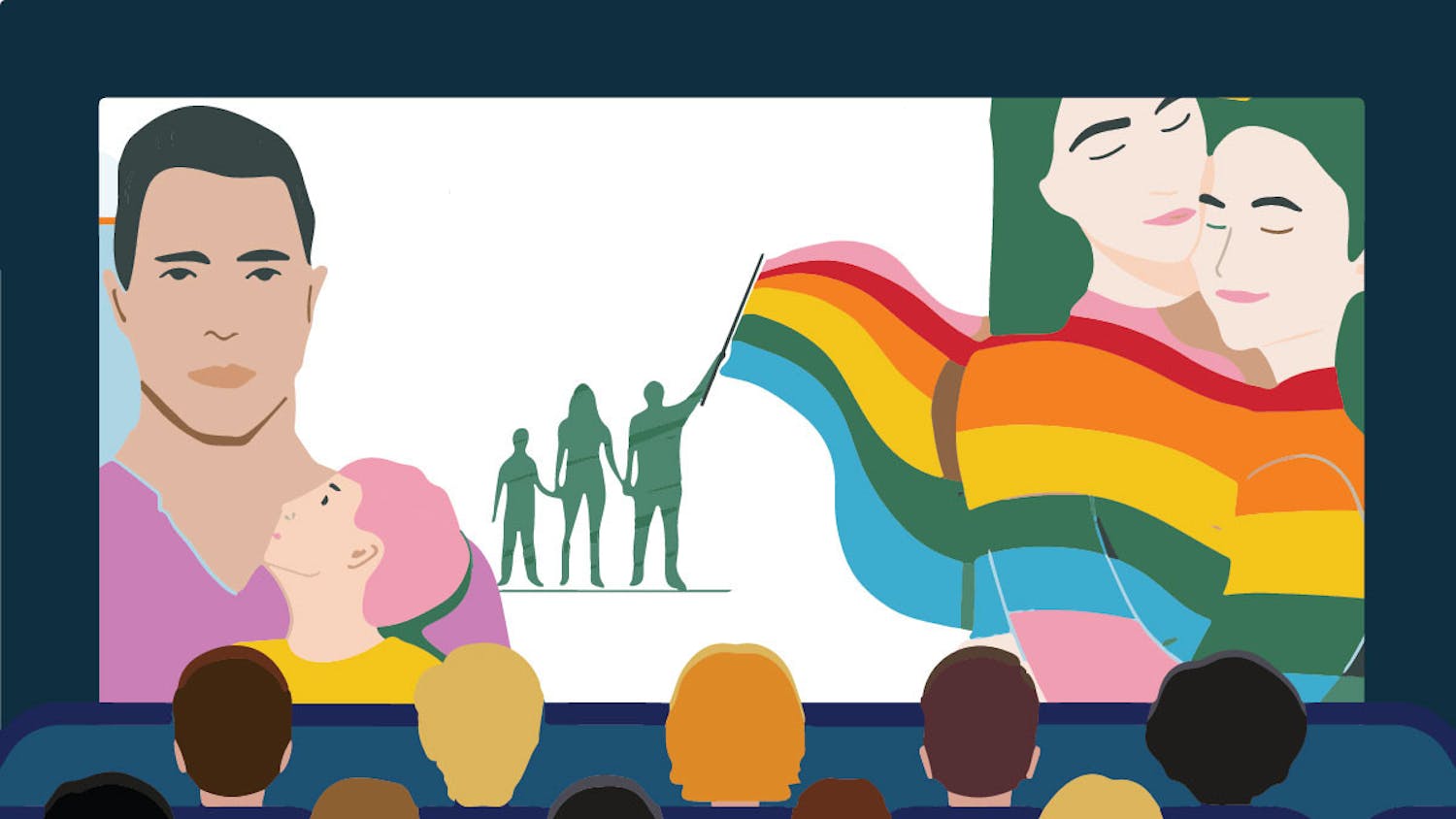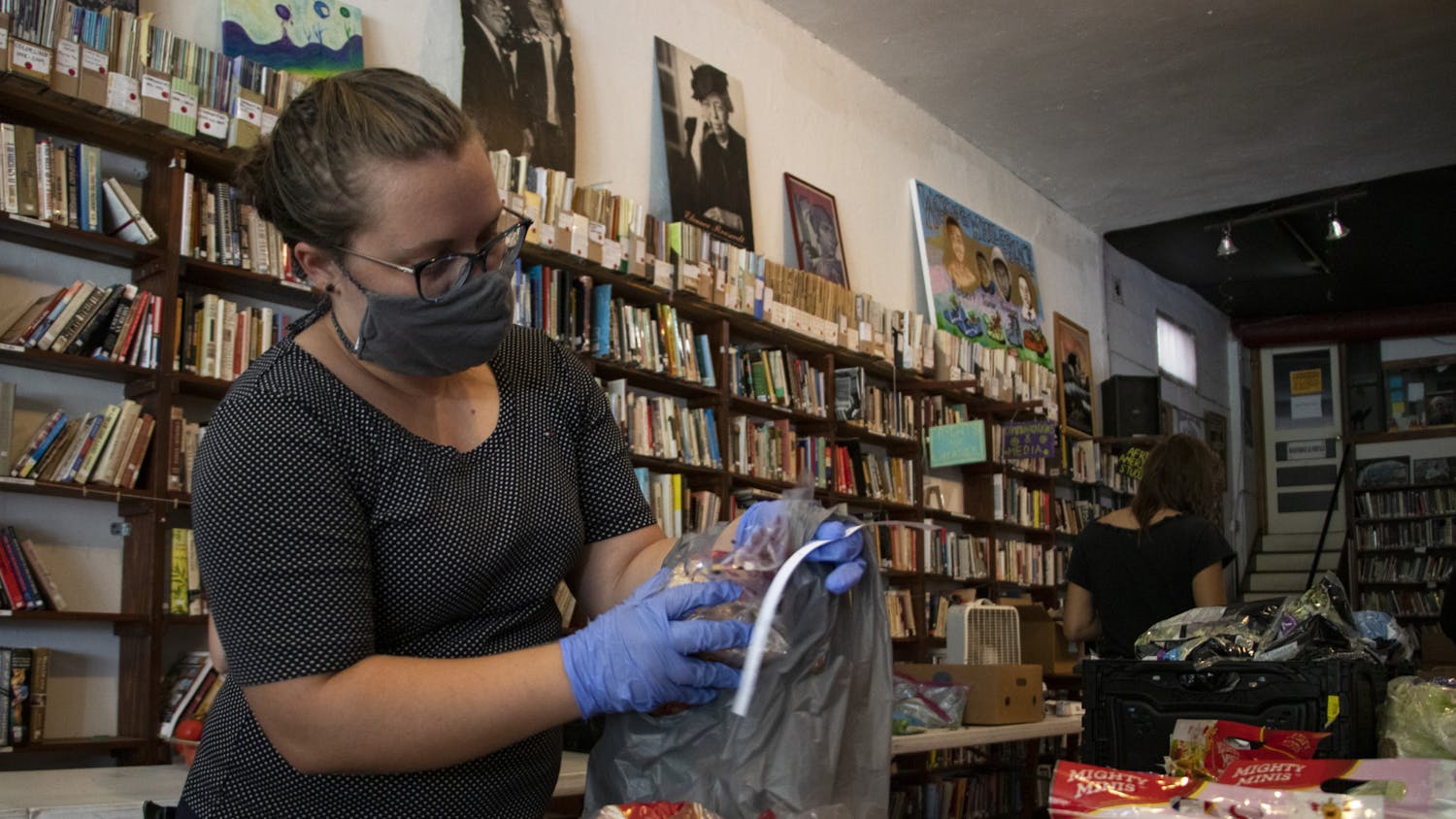There was not an empty seat in the room, yet people continued to file in. The air buzzed with excited chatter then settled to a quiet calm. Only the turn of a page and a single voice broke the silence.
Eleven local authors were invited to read their newly-published mix of prose and poetry pieces at the Bacopa Readings Sunday at the Millhopper Branch Library. Each author’s work was accepted into the 2019 edition of the Bacopa Literary Review.
The Bacopa Literary Review is an international print journal published by the Writers Alliance of Gainesville. Each year, writers, editors and fans gather for a reading to celebrate the new edition.
While this was the 10th annual event and publication, it was the first year all local authors had the opportunity to read their published pieces to the audience. Roughly 50 people gathered to hear them speak.
This year, 11 local pieces were added to the journal, exceeding the editing team’s expectations. They chose approximately 80 pieces blindly from over 1,170 international submissions, unexpectedly revealing a high proportion of local talent.
J.N. Fishhawk, 49-year-old freelance writer and poetry editor of the journal, said they choose the pieces based on merit.
“Tough choices were made,” he said. “It was a process of narrowing it down to a pool of the best quality pieces, and then choosing the best of the best in each genre.”
Fishhawk is a co-host of the Poetry Jam, an open-mic poetry reading taking place every Thursday at the Civic Media Center, and he strongly encouraged his peers to partake in the submission process for Bacopa.
J. Nishida, 48-year-old writer and mother, took Fishhawk’s advice and it paid off. She was one of the local writers published in the international journal this year.
“He commanded that everyone he knew submit something, and I obeyed,” Nishida said.
She first shared her creative writing at one of the Poetry Jam events. Now, Nishida is a co-host of the event with Fishhawk and continues to grow as a writer.
Nishida’s poem, “Pantoum: Admirable Men,” addresses repetitive aggressions against women in society using paraphrased voices from men she either admires or people around her that she has grown up with.
“I want to emphasize that all of the voices, these are paraphrased voices from poets, they’re from artists, they’re from historians,” Nishida said. “One is a monk, one is a Dalai Lama. All of these are people that genuinely, I admire as human beings, or the people around me, the people that I’ve grown up with. That’s what makes it complicated. Because I’m not interested in attacking anyone, I’m just interested in pointing out the attacks.”
Laughter and tears were just two of the audience reactions to the writers. They followed along in their personal copies of the journal, transforming what might have been a solitary activity into a shared experience.
The writers’ lives colored the pieces they presented at the reading, putting them in a vulnerable position behind the microphone.
Regardless of the sensitive subject matter and variation across pieces, the room filled with applause at the end of each reading.
Mary Bast, senior editor and fiction editor of the journal, was touched to see the personal presentation this year. She said the past readings have felt more formal and less emotional.
She urges people of all ages to engage in the writing process to help make a positive impact on society.
“Your words can make a difference and the world needs help,” she said.
Hugh E. Suggs reads his piece, "From One Field to Another," to the audience. He received the first place prize for creative nonfiction this year.






